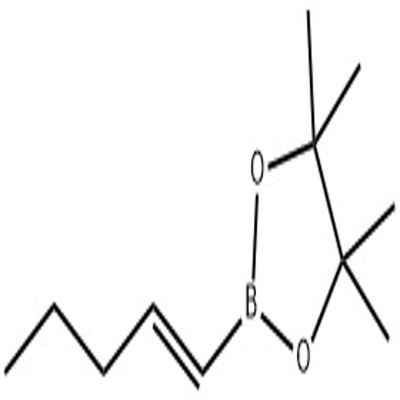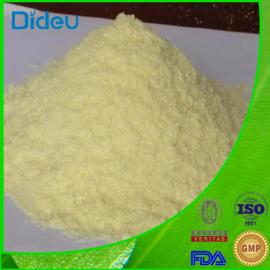-
Categories
-
Pharmaceutical Intermediates
-
Active Pharmaceutical Ingredients
-
Food Additives
- Industrial Coatings
- Agrochemicals
- Dyes and Pigments
- Surfactant
- Flavors and Fragrances
- Chemical Reagents
- Catalyst and Auxiliary
- Natural Products
- Inorganic Chemistry
-
Organic Chemistry
-
Biochemical Engineering
- Analytical Chemistry
- Cosmetic Ingredient
-
Pharmaceutical Intermediates
Promotion
ECHEMI Mall
Wholesale
Weekly Price
Exhibition
News
-
Trade Service
According to the latest announcement today from the Drug Review Center (CDE) of the State Drug Administration of China, Johnson and Johnson Johnson's combination of EGFR-MET dual anti-drug amivantamab injections and three-generation EGFR-TKI drug lazertinib tablets has been approved in four clinical trials, and the adaptations are: It is worth noting that both drugs are in the process of being developed by Johnson and Johnson through licensing and partner development, and are now a key development project in the company's anti-cancer research and development field.
of these, Amivantamab, was awarded a breakthrough treatment by the FDA in March, and Lazertinib was introduced by Johnson and Johnson's Janssen for more than $1.25 billion in 2018.
Photo Source: CDE Screenshot Amivantamab (code: JNJ-6372) is a dual-specific antibody that targets EGFR and MET, which not only blocks ligand binding to EGFR and MET, promotes the degradation of the subject, but also triggers antibody-dependent cytotoxicity.
the antibody was developed by Jansen and Genmab using Genmab's DuoBody technology platform.
, the FDA awarded the drug Breakthrough Therapy for the treatment of metastasis NSCLC patients with EGFR exon 20 insertion mutations.
that clinical trials of the innovative therapy in this area have been positive results and are expected to submit regulatory applications in the United States by the end of the year.
Lazertinib is an efficient, oral, irreversible third-generation tyrosine kinase inhibitor (TKI) that is being developed to treat NSCLC patients with EGFR gene mutations.
is known to be highly specific to EGFR, which carries specific activation gene mutations, and can pass through the blood-brain barrier.
2018, Johnson and Johnson's Janssen acquired exclusive rights to the drug worldwide, excluding South Korea, for an advance of $50 million and a development and promotion milestone payment that is expected to be as high as $1.205 billion.
phase 1/2 clinical trial presented at the 2018 ASCO Conference showed that lazertinib was able to achieve an objective remission rate (ORR) of 61% in NSCLC patients who were already resistant to EGFR-TKI, and 55% of intracranial ORR in patients with brain metastasis tumors.
we all know that lung cancer is the number one cancer.
NSCLC accounts for about 85% of lung cancer cases.
about 75% of NSCLC patients diagnosed with late stages, with a five-year survival rate of only 5%.
public data show that EGFR mutations occur in 10% to 35% of NSCLC worldwide, and about 50% of NSCLC patients in China have EGFR gene mutations.
is why many of the world's targeted drugs for lung cancer have been developed to try to suppress cancer by inhibiting the activity of the mutant EGFR.
from the first to the third generation, several tyrosine kinase inhibitors (TKI) drugs for EGFR have been introduced, bringing clinical improvements to many patients.
, however, access to the drug in patients treated with TKI continues to progress.
in response to drug resistance in patient treatment, scientists in the drug development community are working hard to develop new drugs, including the dual anti-drug amivantamab, which Johnson and Johnson is jointly developing, and the third-generation EGFR TKI drug lazertinib.
that the combination therapy of these two drugs was approved clinically in China, is another advance in their clinical development process.
note that in July this year, Johnson and Johnson registered a phase 3 clinical study of the first-line treatment of locally advanced or metastasis non-small cell lung cancer of EGFR mutations in Amivantamab joint lazertinib at ClinicalTrials.gov. To evaluate the efficacy and safety of the combination therapy compared to ocythioninib or single-drug first-line treatment of EGFR mutations (exon 19 missing or exon 21 L858R replacement), local late stage or metastasis non-small cell lung cancer.
, according to public information, the study is planned to include 1,000 subjects and will officially launch patient recruitment in October this year.
the combination therapy of the amivantamab injection and lazertinib tablets has been approved clinically in China, meaning that the combined therapy in China is about to be carried out in the relevant clinical research.
we congratulate Johnson and Johnson and hope that these studies will be carried out smoothly and bring new hope for treatment to patients at an early time.
References: China's State Drug Administration Drug Review Center. Retrieved Sep 15, 2020, from smh.com.au







